The Debate About Water Lakes on Mars Reignited
October 03, 2022 By Omal J
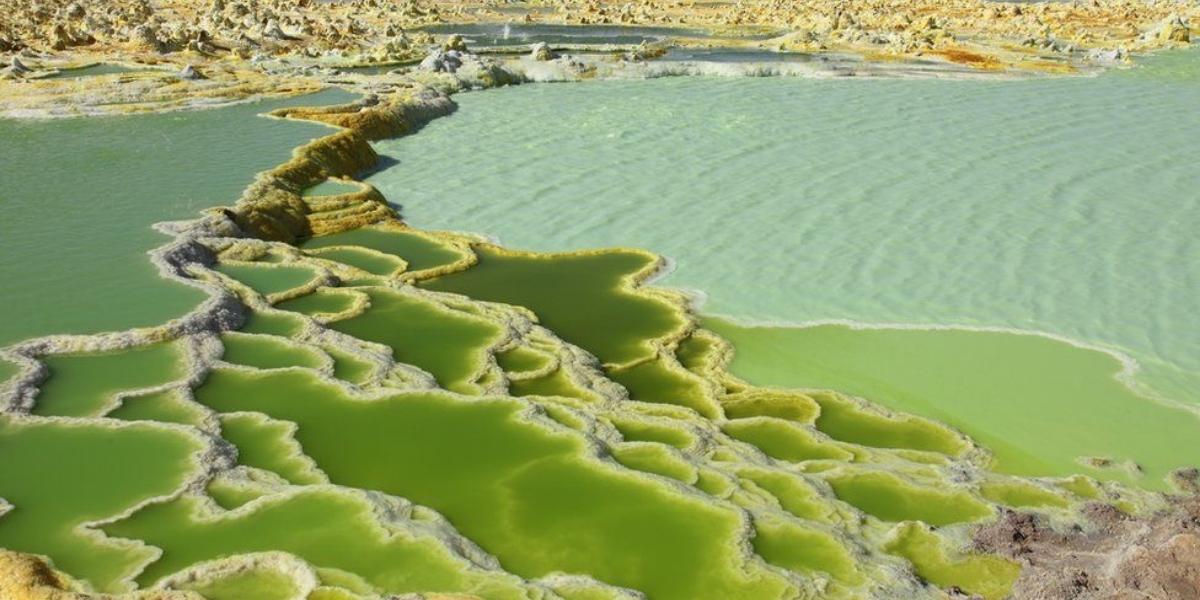
(Image Credit Google)
The debate about vague radar scans of Mars' south pole has been long-standing among scientists worldwide. The questions remain - Do they reveal underground lakes of liquid water? Or something else? And now, the controversy about water lakes on Mars has grown even more intriguing due to two additional articles published this week.
The first study
Using radar information from the Mars Express satellite, a group of Italian researchers claimed to have found a subglacial lake close to the Martian south pole in 2018. Other scientists offered substitutes, such as lumps of clay, that would have created the same reflection patterns in response to doubt over the discovery. Due to water's implications for life, the topic is complex. Although most scientists concur that Mars was once highly wet, the remaining water appears to be all ice.
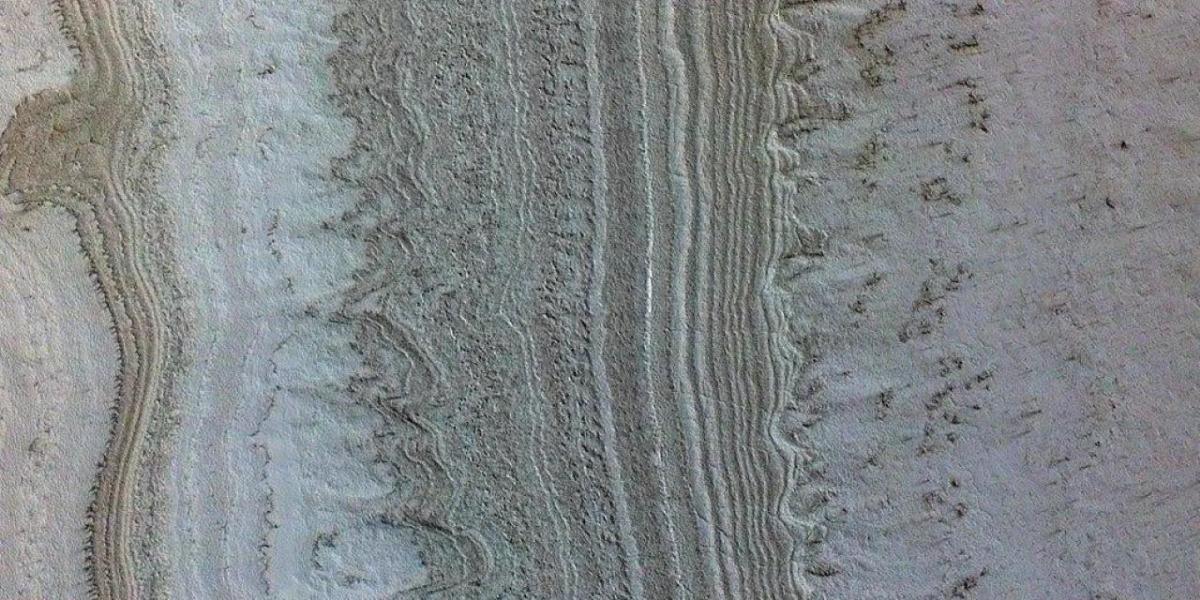
However, this week, fresh data from NASA's Mars Global Surveyor spacecraft that supports the theory of liquid water on Mars reignited the discussion. The radar readings from the 2018 study pointed to an area 12 miles wide below the surface, which the researchers believed to be a subglacial lake or a small area of liquid water.
But a different team looked at satellite data of the area's surface topography to confirm that interpretation. Their investigation, published in Nature Astronomy this week, revealed an undulation of 6 to 15 miles in length, consisting of a dip and an associated rising area, similar to the undulations found over subglacial lakes on Earth.
The scientists then used a computer simulation of ice flow that was accurate to the Martian environment. And the simulation produced undulations comparable in size and shape to those seen on the surface of the Martian ice cap.
So, according to the study, there may be a buildup of liquid water beneath the planet's south polar ice cap. Furthermore, the main study author Neil Arnold of Cambridge's Scott Polar Research Institute, stated, "The combination of the new topographic evidence, our computer model results, and the radar data make it much more likely that at least one area of subglacial liquid water exists on Mars today."
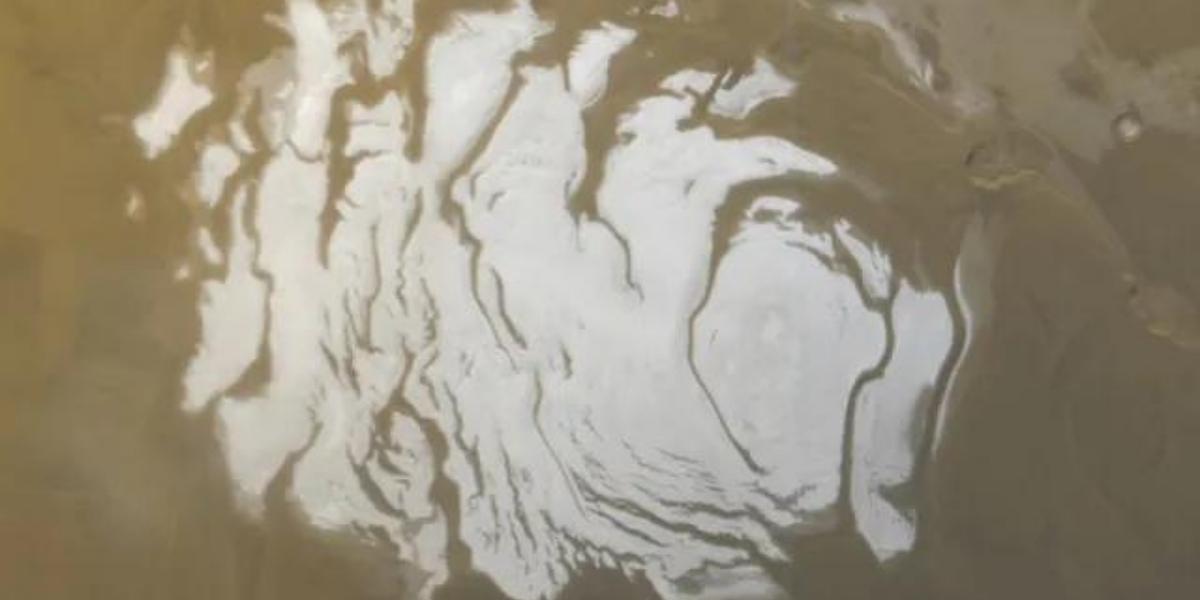
The second study
However, a different recent study contends that the liquid water radar data actually came from the interplay of various Martian geological layers, creating a reflection pattern that might have been mistaken for liquid water. That research, also released this week in Nature Astronomy, offers an alternative justification for the 2018 discovery.
Moreover, the researchers behind this work simulated layers consisting of four different substances—atmosphere, water ice, carbon dioxide ice, and basalt—and observed how electromagnetic radiation interacts with the layers as it passes through them. They discovered that they produced reflections comparable to those seen in the radar data of 2018, depending on the thickness of the layers and how far apart they are.
The study's lead author, Dan Lalich, a research associate at the Cornell Center for Astrophysics and Planetary Science, said, "On Earth, reflections that bright are often an indication of liquid water, even buried lakes like Lake Vostok [under the surface of the East Antarctic Ice Sheet]. But on Mars, the prevailing opinion was that it should be too cold for similar lakes to form.”
Furthermore, Lalich clarified, "None of our work disproves the possible existence of liquid water down there. We just think the interference hypothesis is more consistent with other observations. I’m not sure anything short of a drill could prove either side of this debate definitively right or wrong.”
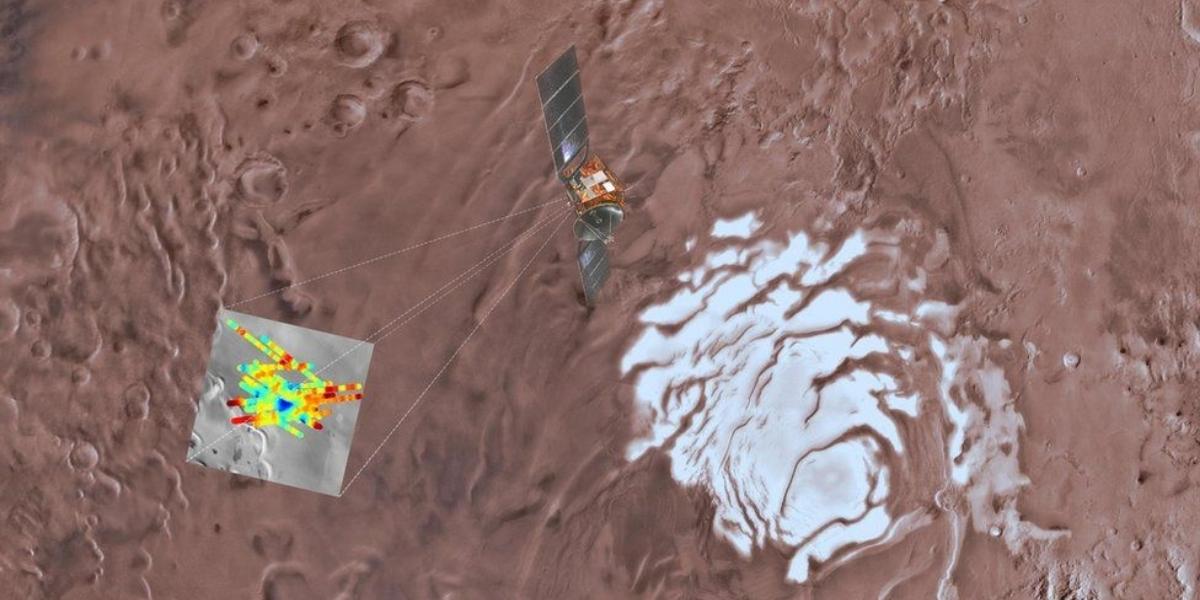
Bottom line
On Mars, temperatures can drop as low as -220 degrees Fahrenheit (-140 degrees Celsius). Those icy temperatures are the primary defense against any liquid water flowing on the Red Planet. However, the authors of the most recent pro-water study claim that geothermal heat generated by the planet itself may be sufficient to preserve the water in liquid form.
Besides, although water is a necessary component for life on Earth, it doesn't follow that our precious life juice would also produce life elsewhere in the cosmos. Nonetheless, the debate about the water on Mars issue does have ramifications for future crewed trips to the planet if we ever want to establish a long-term presence on it.
By Omal J
I worked for both print and electronic media as a feature journalist. Writing, traveling, and DIY sum up her life.
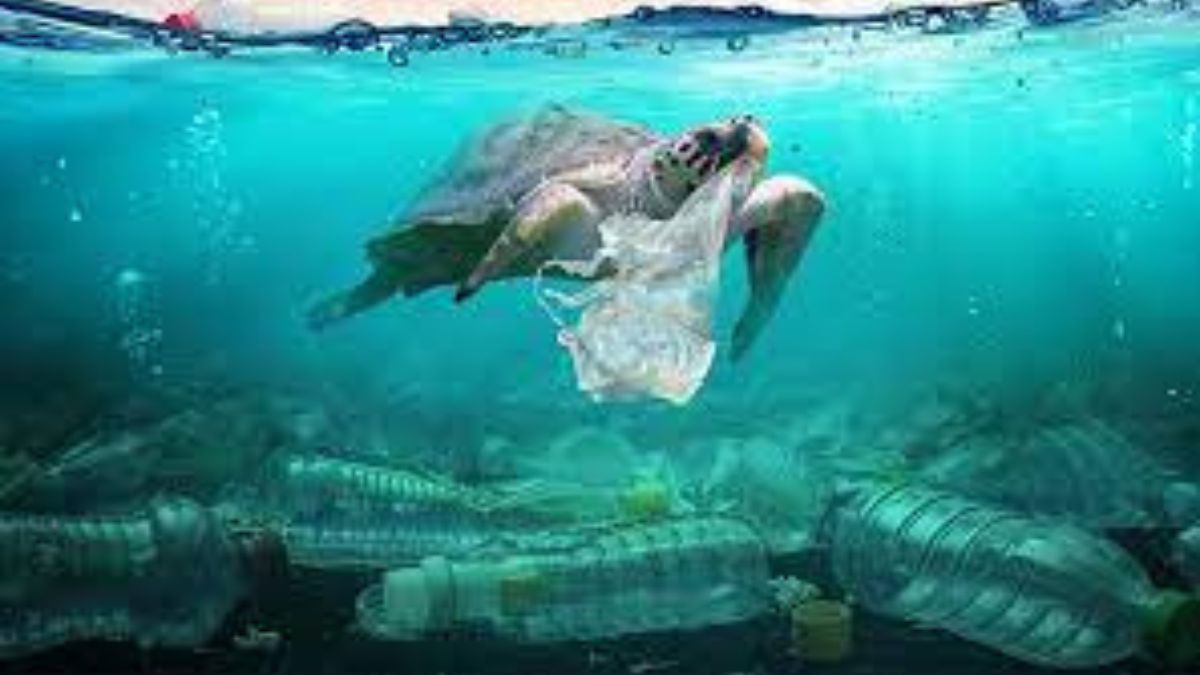

 However, this week, fresh data from NASA's Mars Global Surveyor spacecraft that supports the theory of liquid water on Mars reignited the discussion. The radar readings from the 2018 study pointed to an area 12 miles wide below the surface, which the researchers believed to be a subglacial lake or a small area of liquid water.
But a different team looked at satellite data of the area's surface topography to confirm that interpretation. Their investigation, published in Nature Astronomy this week, revealed an undulation of 6 to 15 miles in length, consisting of a dip and an associated rising area, similar to the undulations found over subglacial lakes on Earth.
The scientists then used a computer simulation of ice flow that was accurate to the Martian environment. And the simulation produced undulations comparable in size and shape to those seen on the surface of the Martian ice cap.
So, according to the study, there may be a buildup of liquid water beneath the planet's south polar ice cap. Furthermore, the main study author Neil Arnold of Cambridge's Scott Polar Research Institute, stated, "The combination of the new topographic evidence, our computer model results, and the radar data make it much more likely that at least one area of subglacial liquid water exists on Mars today."
However, this week, fresh data from NASA's Mars Global Surveyor spacecraft that supports the theory of liquid water on Mars reignited the discussion. The radar readings from the 2018 study pointed to an area 12 miles wide below the surface, which the researchers believed to be a subglacial lake or a small area of liquid water.
But a different team looked at satellite data of the area's surface topography to confirm that interpretation. Their investigation, published in Nature Astronomy this week, revealed an undulation of 6 to 15 miles in length, consisting of a dip and an associated rising area, similar to the undulations found over subglacial lakes on Earth.
The scientists then used a computer simulation of ice flow that was accurate to the Martian environment. And the simulation produced undulations comparable in size and shape to those seen on the surface of the Martian ice cap.
So, according to the study, there may be a buildup of liquid water beneath the planet's south polar ice cap. Furthermore, the main study author Neil Arnold of Cambridge's Scott Polar Research Institute, stated, "The combination of the new topographic evidence, our computer model results, and the radar data make it much more likely that at least one area of subglacial liquid water exists on Mars today."








